Opera Festival of Chicago closes strongly with dark yet compelling double-bill
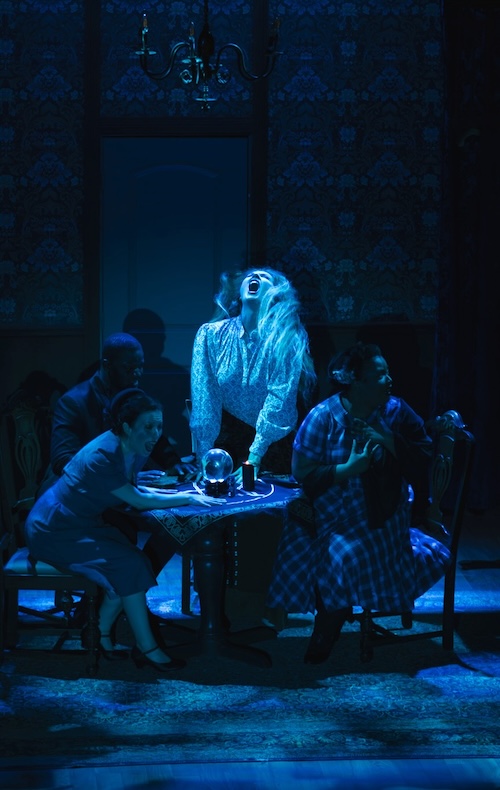
“Are you here for Father Schmitz’s talk?” asked the usher in the foyer of the Athenaeum Center Thursday night.
No, but it’s likely the speech by the popular priest and podcaster Father Mike the same evening in a different Athenaeum space proved a less harrowing experience then the dark and brooding double bill served up by Opera Festival of Chicago. The program will be repeated Sunday afternoon.
Following its production of Puccini’s Manon Lescaut last month, the fledgling company has come up with the kind of enterprising, 20th-century program for its finale that one will not see anywhere else in Chicago: a double bill of Luigi Dallapiccola’s Il Prigioniero and Gian Carlo Menotti’s The Medium.
Both works were Chicago premieres and intriguing rarities, as with the company’s local debut of Ildebrando Pizzetti’s Murder in the Cathedral last year.
As is often the case with smaller opera companies, there were uneven elements Thursday night, some due to the limitations of the venue as much as the budget. Yet overall, with an inspired lineup of singers this was a vocally strong and largely impressive outing by a young opera ensemble that—unlike most in Chicago—appears focused on essential things and is headed in the right direction.
The operatic pairing served up two contemporaneous short works that shared some parallel themes yet proved wildly divergent stylistically—a testament to the dizzying ferment of opera in the post-WWII era.
Dallapiccola’s Il Prigioniero (The Prisoner) premiered via a radio broadcast in 1949 and received its stage debut the following year in Florence. The 50-minute work tells of an unnamed prisoner—presumably a political captive in the form of Cavaradossi in Tosca—who is awaiting execution. After a visit from his mother, the despairing man is heartened by the jailer addressing him as “brother” (fratello) and his dubious reports of liberating forces heartens the desperate, freedom-seeking detainee. The captive hides and is ignored by two passing ineffectual priests. Ultimately, the prisoner recognizes that his prayers and yearning for deliverance from his fate are in vain. As he is led to his execution, he realizes that religion is futile, there is no escape from death, and “hope [is] the ultimate torture.”
If the frolicsome scenario is unrelievedly grim in its existential bleakness, Dallapiccola’s music proved much more compelling in the flesh Thursday night than on recordings, in which the piece seemed dry and ascetic. Company music director Emanuele Andrizzi led a roiling, powerful performance of Dallapiccola’s modified serialism, one that made the astringent score emerge as a kind of edgy, 12-tone verismo.
Unfortunately, the Athenaeum’s main theater has no pit and the large orchestra had to be placed at floor level in front of the wide stage. In the up-close-and-personal seating the Italian composer’s strident scoring and inevitably loud volume proved assaultive at climaxes for all its dramatic excitement.

The cast was uniformly excellent with Franco Pomponi—co-founder and artistic director of OFC—delivering a powerful performance as the title prisoner. Pomponi’s baritone has grown in weight and amplitude since his days as a young artist at Lyric Opera in the mid-1990s. An aptly bedraggled presence as the desperate captive, Pomponi handled all the punishing demands of Dallapiccola’s score, encompassing the fortissimo cries of “Speranza!” (hope) as well as the brutally high tessitura, as with his falsetto repetitions of “Fratello.”
A fellow Lyric young artist in the same bounteous era, David Cangelosi was an appropriately ambiguous figure as the manipulative Jailer who pretends to befriend the prisoner and encourage his democratic ideals only to take the man to his execution (as a devil-like figure clad in papal red). Cangelosi, a much-missed presence at Lyric Opera, deployed his substantial character tenor as required in a nicely understated performance.
As the prisoner’s anguished mother, Viktoria Vizin got the show off to a strong start with her rich mezzo voice and impassioned rendering of the character’s anguish in the opening Prologue. Reuben Lillie and the big-voiced Jonathan Wilson provided apt cameos as the superficial priests. Under Reid Taylor, the chorus delivered their crucial moments with full-voiced dramatic impact.
Eleanor Kahn’s minimalist scenic design did the job, making limited but effective use of projections. Director Harry Silverstein moved the static action efficiently without inserting needless distractions.
__________
The pairing of the two operas made sense since the protagonists of both are tortured souls looking for freedom, peace and/or a spiritual deliverance that proves impossible.
Surprisingly, it was the intractable Dallapiccola work that provided the most successful performance of the bivalved evening while Menotti’s usually failsafe Medium offered more mixed rewards.
One oddity was that OFC elected to perform Menotti’s opera in Italian. The Medium was written and premiered in 1948 in English and is invariably done in the vernacular.
In an email Friday morning, artistic director Pomponi explained the reasoning behind using this alternative Italian version (the translation by musicologist Fedele D’Amico departs from the original in places). Pomponi said that performing the opera as La Medium reflects the company’s emphasis on Italian-language works and provides a Chicago debut in this version. In addition, he said, it makes for a linguistically consistent evening and also adds historical symmetry since the two featured works are exactly contemporary. (The Medium‘s Italian premiere took place in Genoa in 1949.)
Fair enough but there is a dramatic immediacy in Menotti’s original English version for American audiences that at times was lacking Thursday night. One should remember that Menotti was a versatile, greatly gifted man of the theater—writing his own librettos and often directing—and that his operas ran successfully on Broadway before they were performed in opera houses. If he wanted The Medium to be performed in Italian stateside, he would have done so.
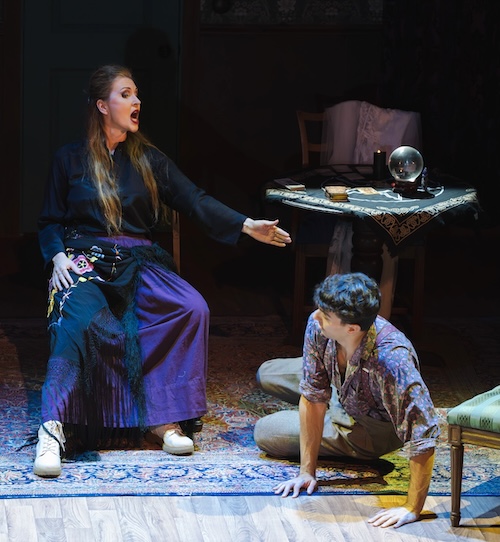
Kahn’s claustrophobic unit set for Madame Flora’s parlor looked rather lost on the wide stage. Andrizzi and the orchestra again delivered strong advocacy for Menotti’s (mercifully) more lightly scored music. Having Robert Hanford, concertmaster of the Lyric Opera Orchestra, sitting first chair paid dividends in the violin solos and Menotti’s moments of wistful lyricism.
Back on stage, Viktoria Vizin took on the pivotal lead role of Madame Flora, the phony medium who uses her tricked-up seances to cheat credulous grieving parents out of their money. Vizin’s imposing mezzo-soprano was impressive once again, with secure singing and descending easily to contralto-like depths on low notes. She rose in mostly worthy fashion to the tragic final scene and Flora’s emotional breakdown.
The problem was Vizin’s mannered, hit-and-miss acting. Menotti’s operas are essentially theatrical plays with music and some genuine dramatic chops are required as much as polished vocalism. In addition to looking too young for the middle-aged role, Vizin failed to create a convincing portrayal of the conflicted faker—abusive and alcoholic yet desperately seeking salvation for her crimes. Her physical movements were too facile and contemporary, and Vizin overly relied on distracting gestures, such as repeatedly pulling her long tresses behind her ears.
Credible acting was also an issue with the miscast Alex Iacobucci as Toby, the mute adopted boy who the drunken Flora viciously abuses. Iacobucci looked too mature and strapping for the tacet role of the child-like victim, and he way overdid his pleading and cringing gestures in overwrought silent-film fashion. Director Silverstein has to take some blame for not reining in his cast’s acting excesses and fixing the lapses.
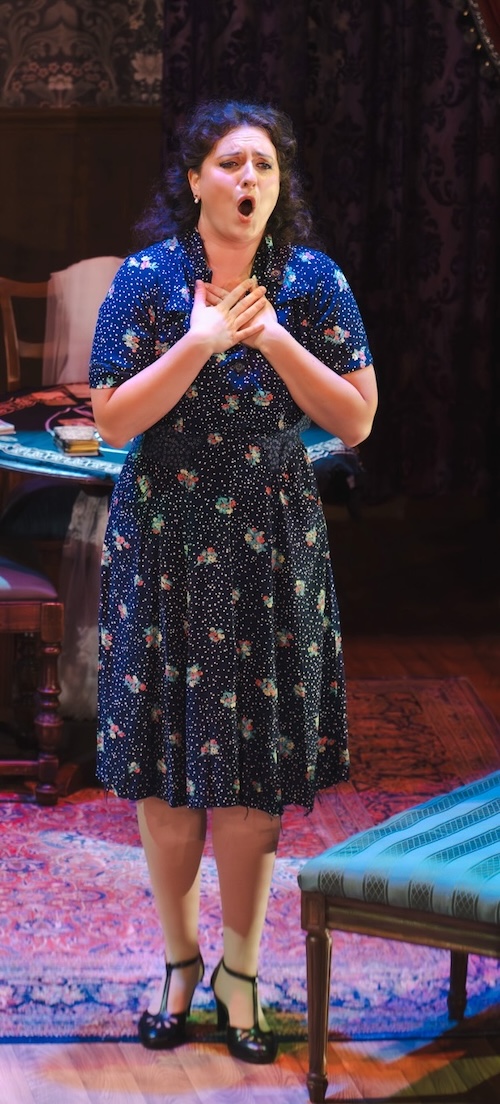
The vocal highlights and finest all-around performance came from Laura McCauley as Monica, Flora’s daughter. Singing with a light yet sweet voice, the young soprano made Menotti’s nostalgic lyricism bloom in her Act II waltz and other spotlit moments. Her natural acting etched the empathetic Monica as a genuine person without affect.
As Flora’s gullible seance customers, Jonathan Wilson and Gisella Milla as Mr. and Mrs. Gobineau and Lauryn Nelson as Mrs. Nolan capably rendered their supporting roles though Wilson’s constant grinning seemed to have little to do with the role or the libretto.
Neither of these works is likely to be heard again anytime soon in Chicago. (Lyric hasn’t touched any Menotti since The Consul in 1996.) Even with the above reservations, opera aficionados and fans of offbeat 20th-century byways should not hesitate about hitting Sunday’s repeat.
Il Prigioniero and The Medium will be repeated 2 p.m. Sunday at the Athenaeum Center. operafestivalchicago.org
Posted in Uncategorized
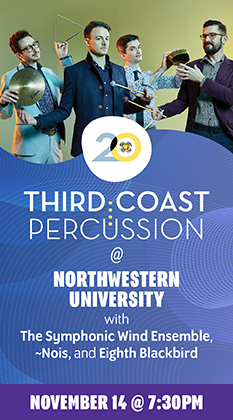
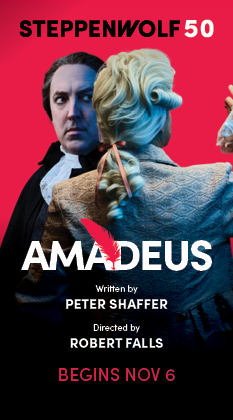
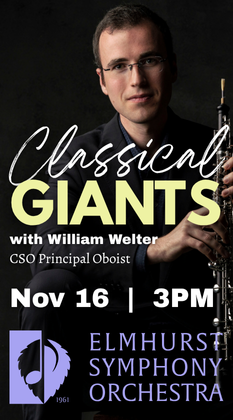
Posted Jul 12, 2024 at 4:57 pm by Tim
Though serialistic in style, Il Prigioniero had much aural appeal (to my ears) and was almost French impressionistic in colors and sensibility. With strong vocal lines from both primary characters and chorus, this turned out to be a wonderful discovery which deserves more frequent performance in standard repertoire. It was good to see and hear Cangelosi in town again (and helped as a draw to sell the ticket I purchased.) However, Pomponi was the highlight of the night.
I, too, was a bit befuddled by The Medium being sung in Italian (though I appreciate the explanation). At least it proves that this opera company has a clear vision to articulate, which is more than can be said for the city’s other opera companies, save Haymarket.
Still, this proved to be a compelling double bill which should be performed together by other companies internationally.